Selecting the appropriate dump trailer for your needs can transform your hauling efficiency and productivity. With various options available in the market, each designed for specific applications, making the right choice requires careful consideration. This guide meticulously details critical factors to ponder when choosing a dump trailer, ensuring you make an informed purchase decision.
Understanding the Purpose of Your Dump Trailer
Before diving into the specifics, it’s crucial to clarify the intended purpose of your dump trailer. Dump trailers are utilized in a myriad of applications, including but not limited to:
- Construction Work: Transporting gravel, asphalt, or demolition debris.
- Landscaping: Hauling soil, mulch, and landscaping materials.
- Agricultural Use: Moving feed, fertilizers, or produce.
- Recreational Activities: Using for off-road vehicles or equipment transport.
How you intend to use the trailer will dictate many of your choices, from size and material to hydraulic lift and braking systems.
Size and Capacity Considerations
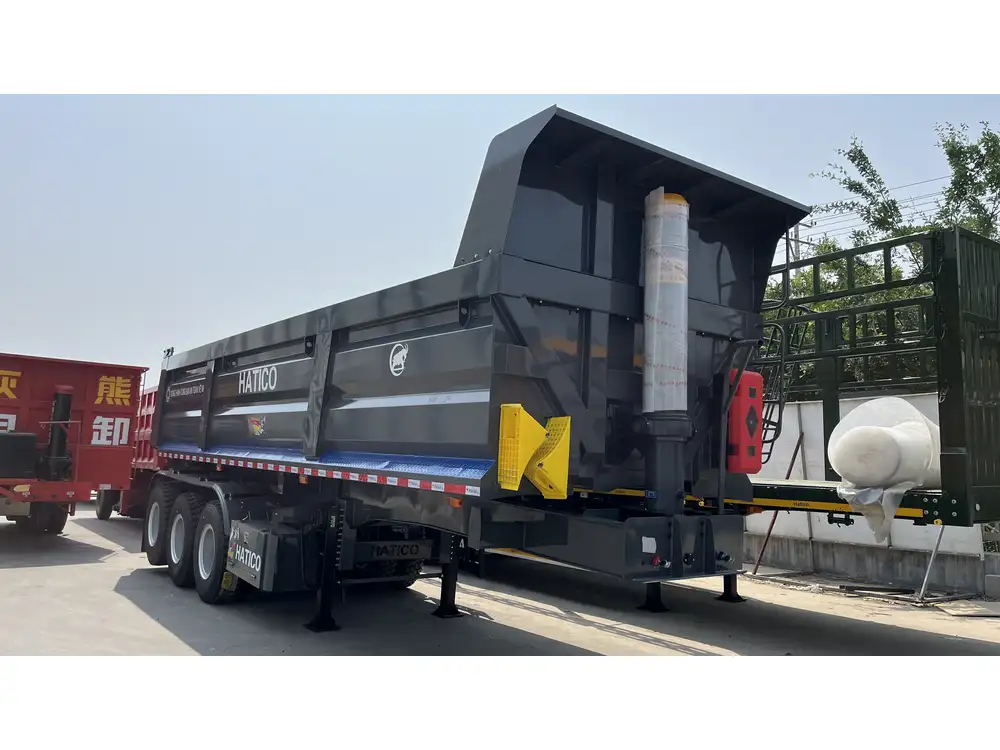
Trailer Size
The size of the dump trailer is one of the first criteria to consider. Dump trailers come in various lengths, typically ranging from 4 to 24 feet. Your choice will hinge on:
- Material Volume: The amount of material you plan to transport regularly.
- Weight Capacity: Ensure that the trailer’s Gross Vehicle Weight Rating (GVWR) meets the demands of the loads you will haul.
Load Capacity
Each dump trailer has a specified weight capacity, which is equally critical to assess. Overloading can lead to safety issues and damage to the trailer or vehicle. Focus on:
- Material Weight: Different materials have varying weights. For instance, a cubic yard of dirt weighs approximately 2,000 pounds, whereas gravel generally weighs around 1,500 pounds per cubic yard.
- Payload Factors: Understanding axle ratings and ensuring your truck or towing vehicle can handle the payload alongside the trailer.
Load Capacity Table
| Material | Weight per Cubic Yard (lbs) | Example Load (cubic yards) | Total Weight (lbs) |
|---|---|---|---|
| Topsoil | 2,000 | 10 | 20,000 |
| Gravel | 1,500 | 10 | 15,000 |
| Asphalt | 2,100 | 10 | 21,000 |
| Mulch | 800 | 10 | 8,000 |
| Rock | 1,200 | 10 | 12,000 |
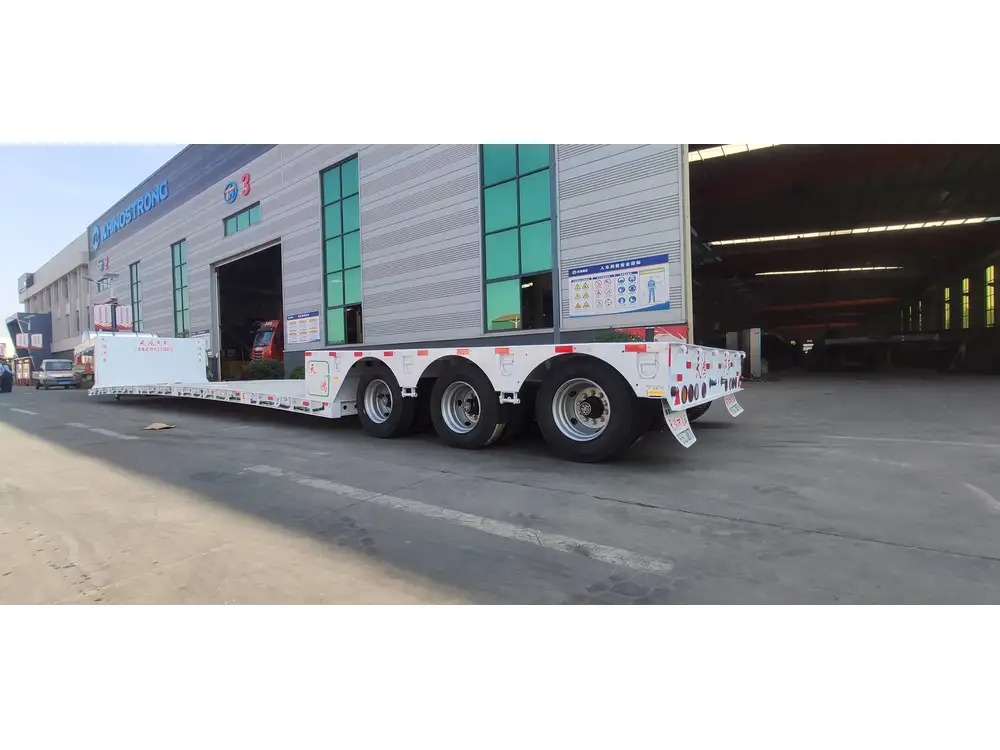
Towing Capacity
In conjunction with trailer size and load capacity, understanding your vehicle’s towing capacity is paramount. Assess the following:
- Manufacturer’s Guidelines: Check the towing capacity as specified in the vehicle’s owner manual.
- Additional Equipment: Consider the weight of any additional fixtures on the trailer, such as ramps or toolboxes.
Material Quality and Construction
Steel vs. Aluminum Trailers
Dump trailers generally come in two primary material types: steel and aluminum. Each material carries distinct advantages and disadvantages:
Steel Trailers:
- Pros: More durable, higher weight capacity, and often less expensive.
- Cons: Heavier and prone to rust if not coated properly.
Aluminum Trailers:
- Pros: Lightweight, resistant to rust, and typically have a higher resale value.
- Cons: More expensive and less capable of handling heavier loads than steel.

Frame and Axle Design
The construction quality of the frame and axle design influences the longevity and resilience of the dump trailer. Key points include:
- Frame Construction: Look for fully welded frames versus bolt-together designs, as they typically offer stronger structural integrity.
- Axle Configuration: Choose between single or tandem axles, where tandem setups distribute weight better and generally provide better stability.
Hydraulic Systems and Lift Features
Types of Hydraulic Systems
A reliable hydraulic system is essential for seamless unloading of materials. Consider the following options:
- Scissor Hoist: Provides a more robust lifting capability ideal for heavy loads, allowing for a better lifting height.
- Telescopic Hoist: Offers a significant lift height with reduced overall height when not in use, beneficial for lower clearance situations.
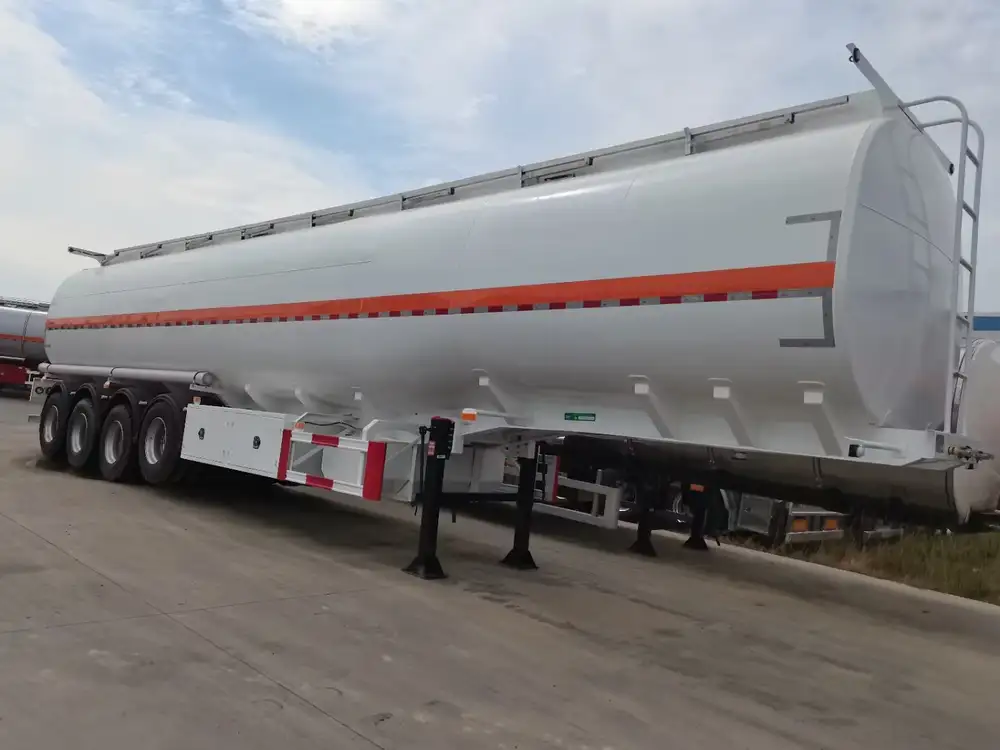
Electrical Systems
With hydraulic lifts, most modern trailers come with integrated electrical systems. Pay attention to:
- Wiring Quality: Ensure quality wiring that can withstand wear and tear.
- Battery Options: Assess whether the trailer has a dedicated battery system for hydraulic operation, which is critical when not towing.
Braking Systems: A Critical Safety Feature
Types of Brakes
Braking systems are vital for ensuring safety and control while hauling heavy materials. Your options include:
- Electric Brakes: Easy to install and require minimal maintenance, offering consistent braking performance.
- Hydraulic Brakes: Provide superior stopping power and are ideal for heavy-duty applications.
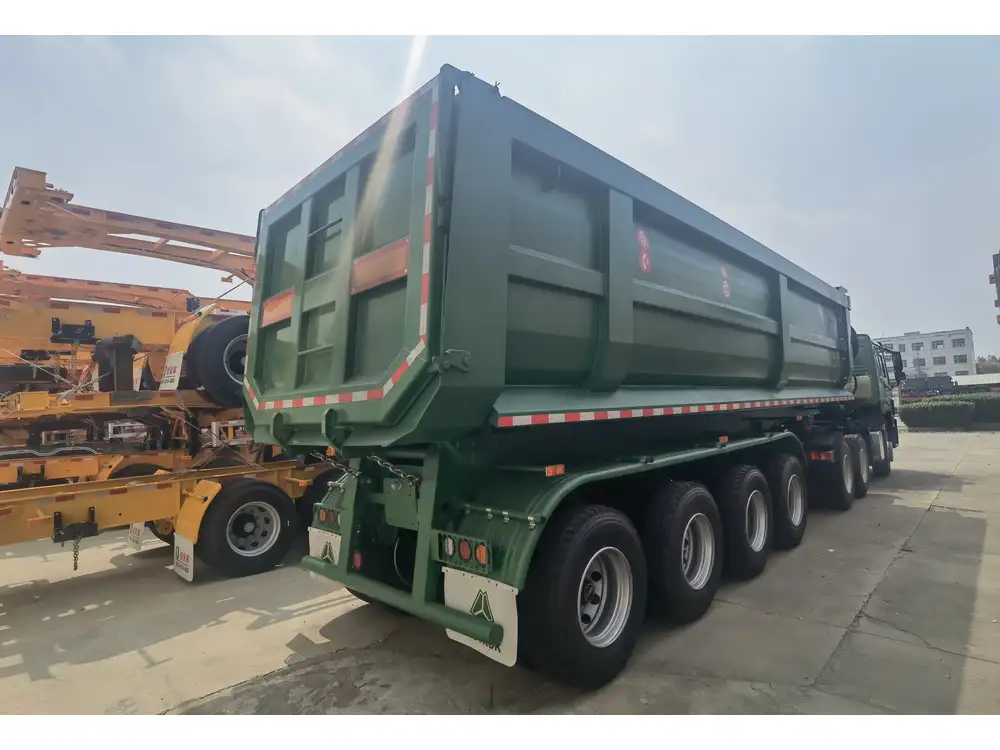
Brake Compatibility
Make sure that whatever braking system you select is compatible with your towing vehicle. Some systems require specific controllers installed in the towing vehicle for effective operation.
Suspension Systems
The type of suspension system on a dump trailer can greatly impact handling and ride quality. Consider:
- Leaf Spring Suspension: Commonly used in dump trailers, providing durability but can be stiffer and less forgiving on rough terrain.
- Torsion Axles: Offer a smoother ride since they’re designed to absorb shock, which helps protect the trailer and its load.
Tire Selection for Optimal Performance

Tire Types
The choice of tires can significantly influence traction, stability, and long-term performance. Key options include:
- Radial Tires: Better for highway towing, providing superior tread wear and fuel efficiency.
- Bias Ply Tires: Offer a higher load capacity at lower prices but may wear out faster on highways.
Tire Pressure Monitoring
Maintaining optimal tire pressure ensures safety and enhances fuel efficiency. Consider investing in a tire pressure monitoring system (TPMS) for peace of mind.
Legal and Regulatory Considerations
Understanding the legal implications of owning and operating a dump trailer is essential. Parameters include:
- Weight Limits: Complying with local and federal weight regulations when loaded.
- Licensing and Registration: Ensuring the trailer has received proper licensing based on its weight class and type.

Budget and Financing Options
Initial Costs
When budgeting for a dump trailer, consider both upfront costs and long-term expenses. A high-quality steel trailer may be more expensive upfront; however, its durability might justify the investment over time.
Financing Solutions
Explore various financing options, including:
- Leasing Options: Ideal for businesses looking for flexibility and cash flow management.
- Traditional Loans: Useful for buyers who prefer ownership.
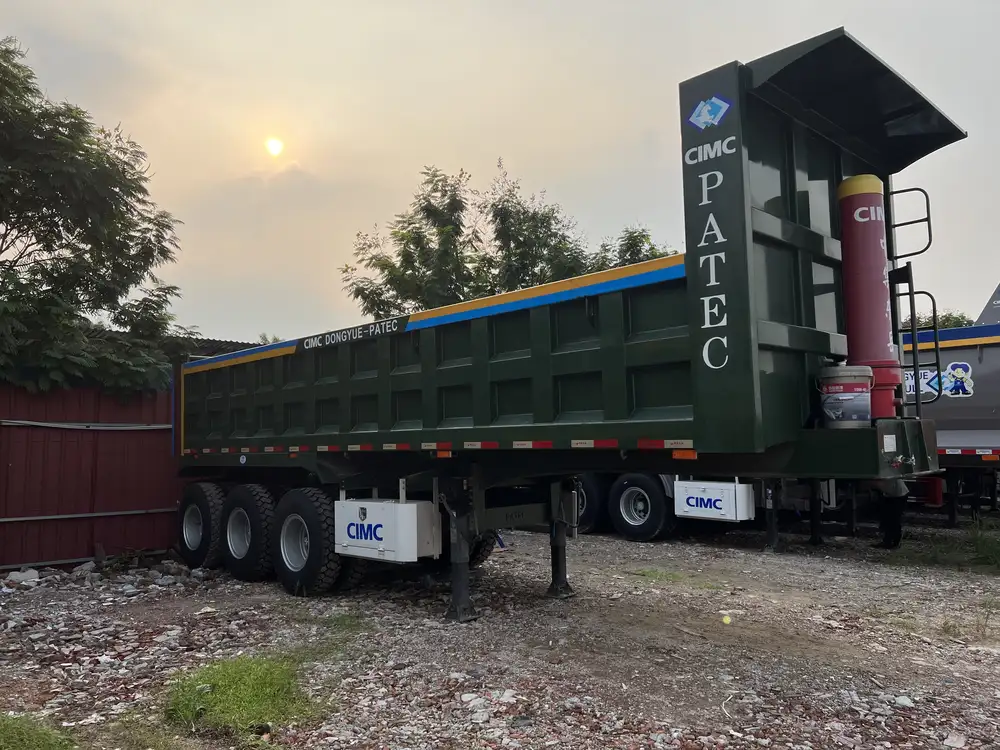
Conclusion: Making an Informed Decision
Choosing the right dump trailer is an imperative step for anyone engaged in extensive hauling tasks. Methodically assessing the trailer’s size, material, construction quality, hydraulic systems, braking features, and overall cost plays a crucial role in your ability to make a sound investment. By doing so, you enhance not only your productivity but also ensure safety and reliability in all your hauling endeavors.
Whether you’re a contractor needing a heavy-duty trailer for construction or a landscaper looking to transport mulch efficiently, understanding these fundamental aspects equips you with the knowledge to select a dump trailer that aligns perfectly with your requirements.



